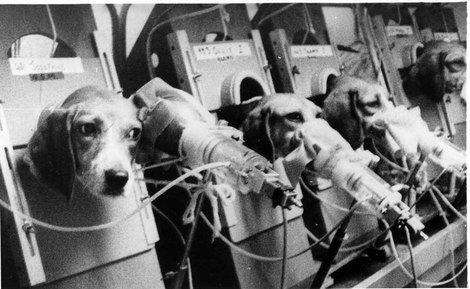The tobacco giant, Philip Morris International (PMI), has applied to the US Food and Drugs Administration (FDA) to market what they call ‘modified risk tobacco products’ (MRTP), in particular, their heated tobacco contraption with the unpronounceable name of IQOS, or iQOS.
They start by putting their cards on the table: ‘PMI recognizes that cigarettes are a dangerous product.’ Then why don’t they stop making them?
In the application they submit evidence to support their claim that if smokers switch completely (the word ‘completely’ is redundant) to iQOS they ‘can reduce the risks of tobacco-related diseases.’
But now the Oh-so-honest American Global Cigarette and Tobacco Company, PMI, makes a devastating admission:
It is well known that the best way to avoid the harms of smoking is never to start, and for smokers, the best way to reduce the harms of smoking and the risk of tobacco-related disease is to quit. (Emphasis added.)
Note how they say that if you want to avoid the harms of smoking you should never start, which is true indeed, but if you are already a smoker and you quit, then you can only reduce the harms to which you have been exposed, not avoid them.
This is because, even if you stop smoking, the damage may already have been done. Certainly the risk of getting cancer will decline steeply as a few years go by after quitting but, alas, the risk will not go down to what it would have been if someone had never smoked.
Just to rub it in, they go on: ‘Cigarette smoking [accounts in America] for more than 480,000 smoking-related deaths every year, and more than 16 million Americans live with a smoking-related disease.’
So what does PMI do in the light of these shocking revelations?
They present themselves as the good guys:
PMI…has recently announced its goal to lead a full-scale effort to ensure that MRTPs ultimately replace cigarettes. Indeed, PMI envisions a smoke-free world where a broad range of MRTPs fully satisfies the continuing consumer demand for tobacco and nicotine products.
So PMI wants to be a public health champion, envisioning a smoke-free world where products such as iQOS will ultimately replace cigarettes. Note the assumption that there will always be – happily for PMI and its shareholders! – a ‘continuing consumer demand for tobacco and nicotine products’. How about envisioning a nicotine addiction-free world?
All this, however, is merely a prelude to what I want to say in today’s post.
PMI, in their great humanitarian efforts to develop tobacco products that they hope will be less harmful than cigarettes, have applied to the FDA for a licence to market their iQOS product. And what evidence do they present in favour of their application?
They subjected rats and mice to cruel experiments in which they were forced to breath iQOS fumes for six hours a day, five days a week for months on end. The fumes were either pumped into the boxes where the animals were confined, or in ‘nose only’ tests, they were held immobile in a kind of funnel with their noses sticking out of the end to be exposed directly to the fumes. The reason for this refinement was to avoid messing up the experiment by the animals ingesting more of the poisons by licking their fur as they would do if the whole body was exposed. The animals were then then killed and their noses, throats, and lungs examined to see how much damage had been inflicted. Very little damage. Therefore iQOS is (relatively) safe for humans, they say.
Apart from the fact that there is no scientific basis for assuming that what happens or doesn’t happen in experiments on rodents has any relevance for humans, these abhorrent tests are manifestly cruel, causing pain and distress to these animals.
This research is reminiscent of the ‘smoking Beagles’ scandal in Britain in 1975 when an undercover investigation led to the exposure of experiments being done on Beagle dogs in a futile attempt to develop a ‘safer’ cigarette. The work was done by Imperial Chemical Industries (ICI). The dogs were restrained and forced to breath, by a face mask, the smoke from up to thirty cigarettes a day for as long as three years. The subsequent public outcry led to animal experiments for tobacco products being banned in Britain and Europe – but not in America.
It’s not as if the experimenters were using animals in the hope of finding a cure for cancer. Their object was to find a new way, acceptable to the FDA, of keeping people hooked on nicotine so their profits will remain healthy to make up for the decline in cigarette sales.
Text © Gabriel Symonds



Leave A Comment